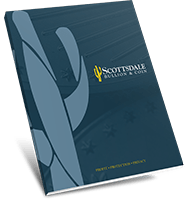 Since the collapse of the financial markets in 2008, Americans are wary of yet another bubble to burst and disrupt the barely recovering economy. Experts have been warning the public about possible impending bubbles with regard to ballooning student loan debt and soaring real estate prices. However, even more worrisome is the unabated rise of stock prices as the stock market is an integral part of the economy.
Since the collapse of the financial markets in 2008, Americans are wary of yet another bubble to burst and disrupt the barely recovering economy. Experts have been warning the public about possible impending bubbles with regard to ballooning student loan debt and soaring real estate prices. However, even more worrisome is the unabated rise of stock prices as the stock market is an integral part of the economy.
About 2 weeks ago, news about inflated stock prices alarmed market observers on Wall Street. The stock prices of Standard & Poor’s 500 Index (SPX) have climbed 146 percent since it hit rock bottom in 2009. In fact, the price gains of the stocks in the S&P 500 are outperforming the profits by the fastest rate in 14 years. While combined profit at S&P 500 companies rose by 37 percent in 2010, 19 percent in 2011 and then slowed to 2.3 percent last year, earnings increased 3.6 percent and 3.7 percent in the first and second quarters.
However, corporate earnings have to accelerate to validate the surge in equities, especially as the central bank begins to reduce its monetary stimulus (Fed Chairman Ben S. Bernanke announced in May that the central bank would reduce its bind buying this year). Companies like Caterpillar Inc. and Danaher corp. predict slower profit growth to slow down significantly. If earnings fail to keep up with price signals, the rally could be in its final stages.
In fact, the 53-month gain has surpassed the average length of bull markets since 1946 by about four months. Moreover, Bloomberg reports that “[t]he benchmark gauge for U.S. equities has risen 14 percent relative to income over the past 12 months to 16 times earning, according to data compiled by Bloomberg.” The last time this happened was in 1999 during the technology bubble, when valuations ascended 19 percent in a year to a 30 times profit, just before the S&P 500 index started its 49 percent fall.
This is indeed concerning as the S&P 500 comprises the most significant corporations in America and is considered a staple in even the most conservative portfolios. When investors flee emerging markets in an unstable economy, the S&P 500 becomes a popular and safe destination for their retirement money. But if the stock market crashes again, these assets will essentially evaporate.
What can you do to protect yourself? Make sure to invest your retirement money in a safe asset that is relatively immune to market fluctuations, protected from inflation, corporate profits, and worthwhile at all times. Precious metals like gold and silver may protect your retirement money from a looming crash; moreover, if the stock market collapses, as many financial experts fear, gold and silver prices will most likely see an “explosion” – Ron Paul in price.
 Want To Learn How To Invest In Physical Gold Like a PRO?
Want To Learn How To Invest In Physical Gold Like a PRO?
Get a Free Gold Investment Guide Now – Click Here.

